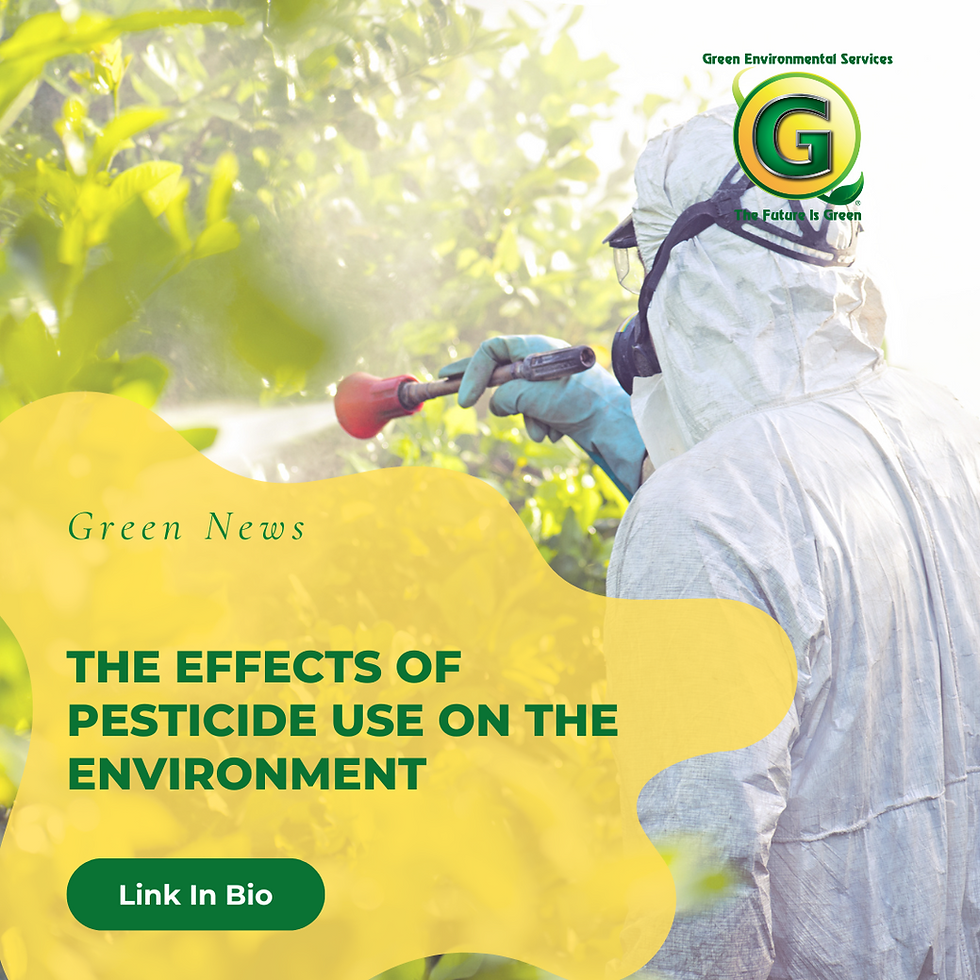The Impact of Industrial Agriculture on the Environment
- Green Environmental Services
- Jan 5, 2024
- 2 min read
Updated: Jun 7

Introduction:
Industrial agriculture, also known as modern or conventional farming, has revolutionized the way we produce food. While it has significantly increased food production to meet the demands of a growing population, it comes at a steep cost to the environment. In this blog post, we will explore the profound impact of industrial agriculture on the environment and its long-term consequences.
Deforestation and Habitat Loss:
One of the most devastating consequences of industrial agriculture is deforestation. To make way for massive monoculture crops and livestock farms, vast areas of forests are cleared. This not only leads to the loss of biodiversity but also contributes to climate change by releasing stored carbon into the atmosphere.
Soil Degradation:
The intensive use of chemical fertilizers, pesticides, and herbicides in industrial agriculture can lead to soil degradation. These chemicals can harm beneficial microorganisms and reduce soil fertility over time, making it less able to support plant growth naturally. Soil erosion is also a significant concern, as the removal of natural vegetation exposes the soil to wind and water erosion.
Water Pollution:
Industrial agriculture relies heavily on irrigation, which often leads to water scarcity in some regions. Moreover, the runoff from farms carries excess nutrients and chemicals into nearby water bodies, causing water pollution. This can result in algal blooms, dead zones, and harm to aquatic life.
Greenhouse Gas Emissions:
The livestock sector within industrial agriculture is a significant contributor to greenhouse gas emissions. Livestock, especially cattle, produce methane, a potent greenhouse gas that contributes to global warming. Additionally, the energy-intensive nature of large-scale farming operations also contributes to carbon emissions.
Biodiversity Decline:
Monoculture farming practices and the widespread use of pesticides harm biodiversity by reducing the variety of plants and animals in agricultural landscapes. This can disrupt ecosystems, threaten native species, and increase the risk of pest outbreaks due to the absence of natural predators.
Conclusion:
The impact of industrial agriculture on the environment is undeniable, with consequences ranging from deforestation to soil degradation, water pollution, greenhouse gas emissions, and biodiversity decline. As consumers and policymakers, it is crucial to promote sustainable and environmentally friendly agricultural practices to mitigate these adverse effects and secure a healthier future for our planet. By supporting local and organic farming, reducing food waste, and advocating for responsible agricultural policies, we can take steps towards a more sustainable and environmentally conscious food system.








Comments